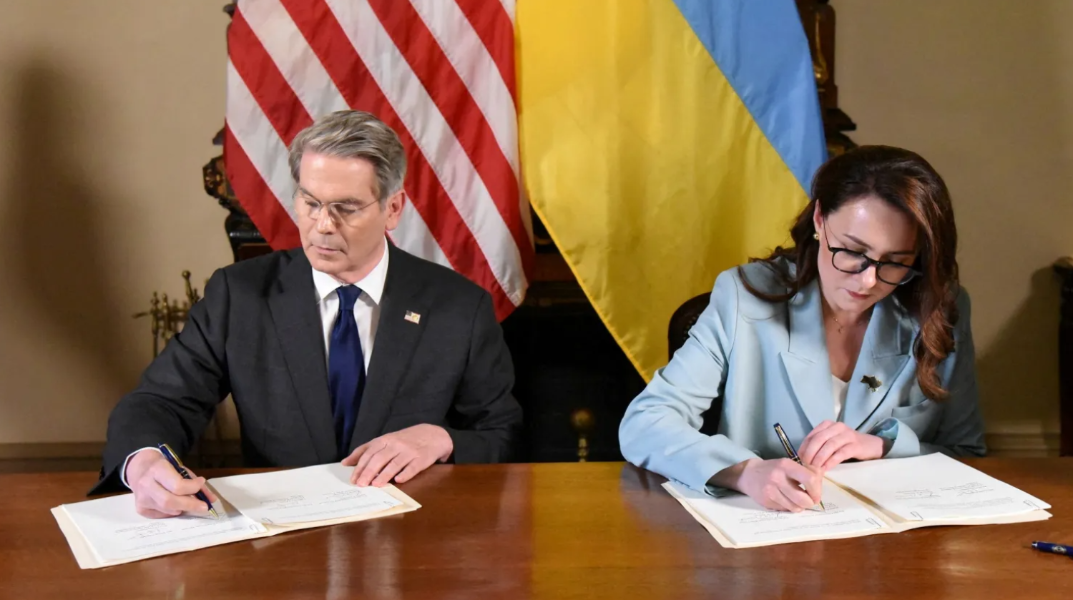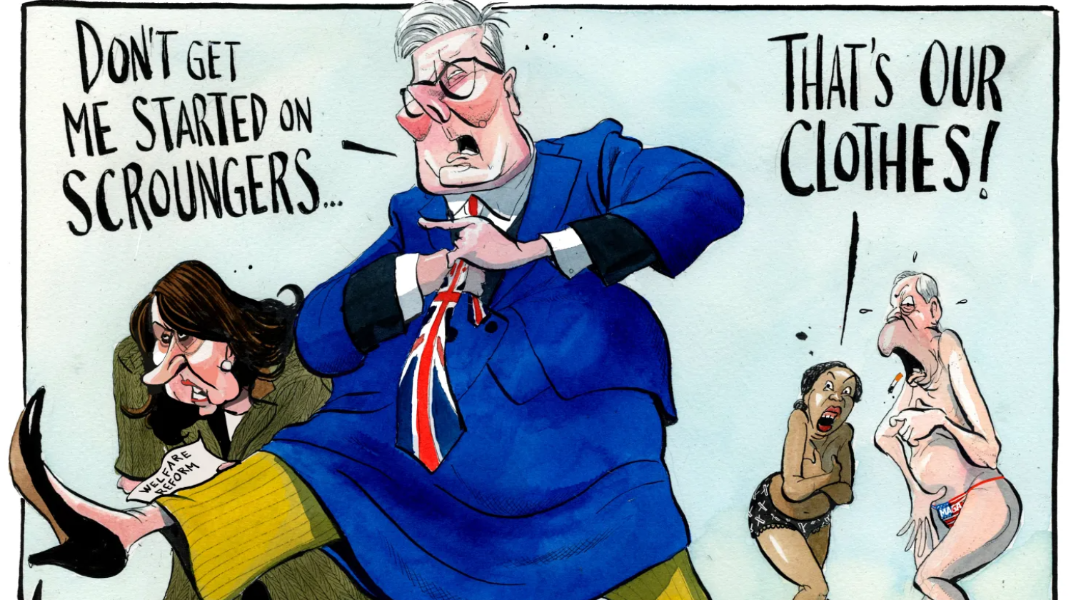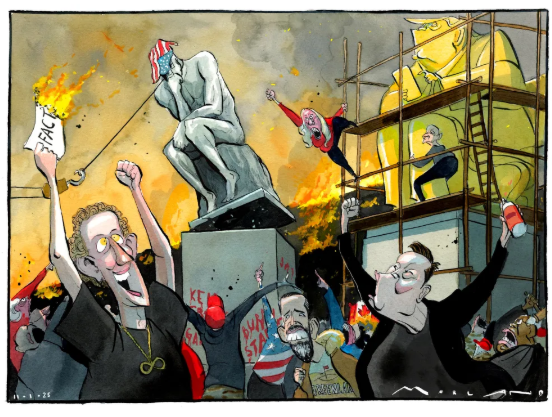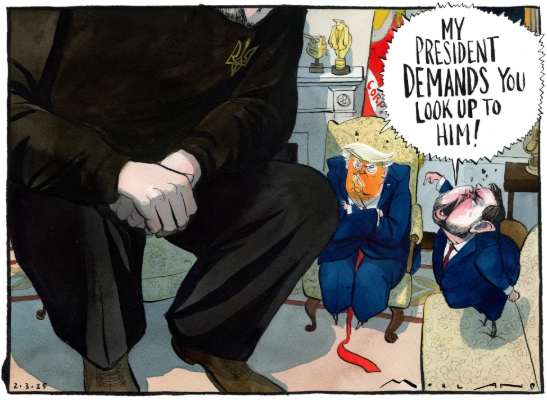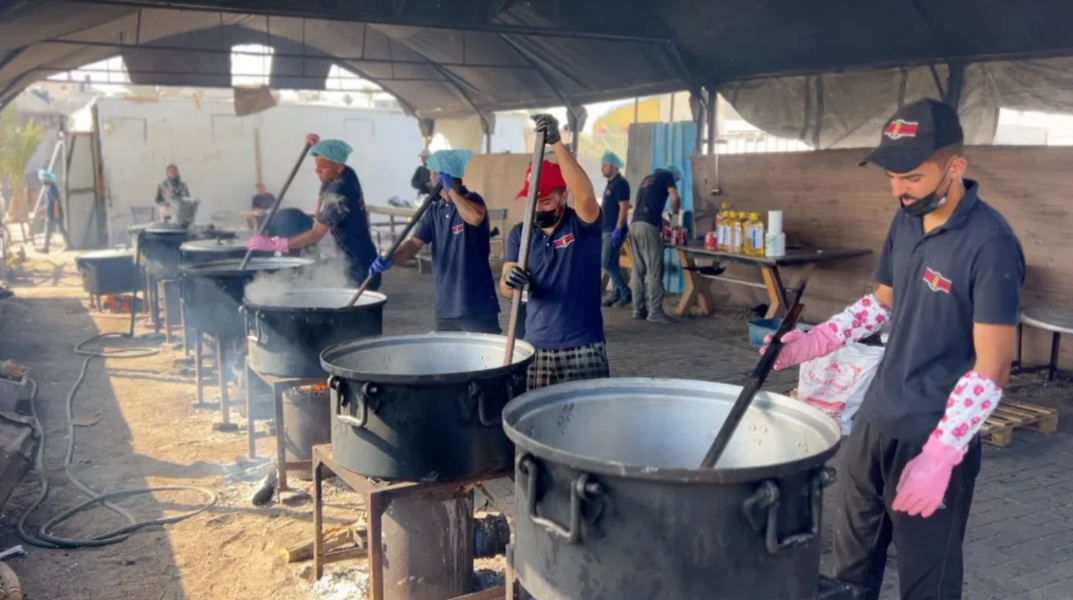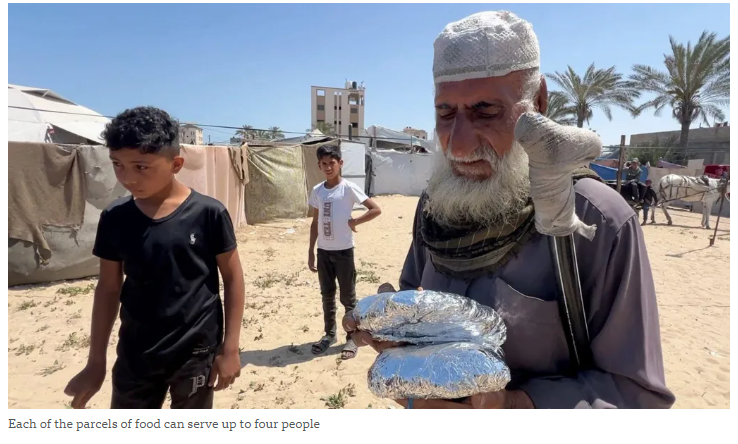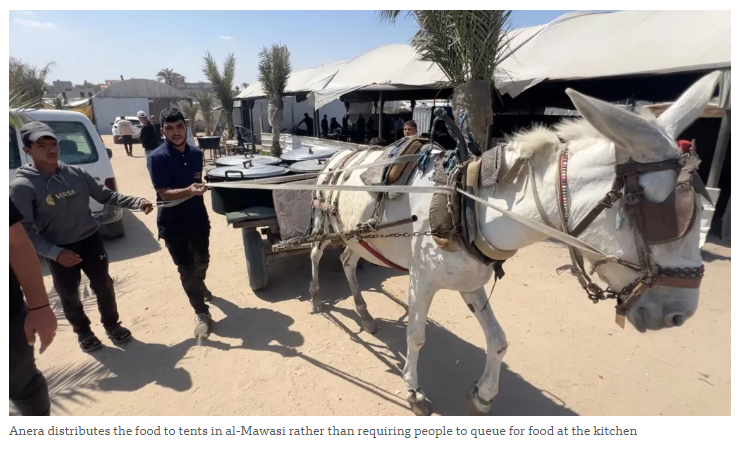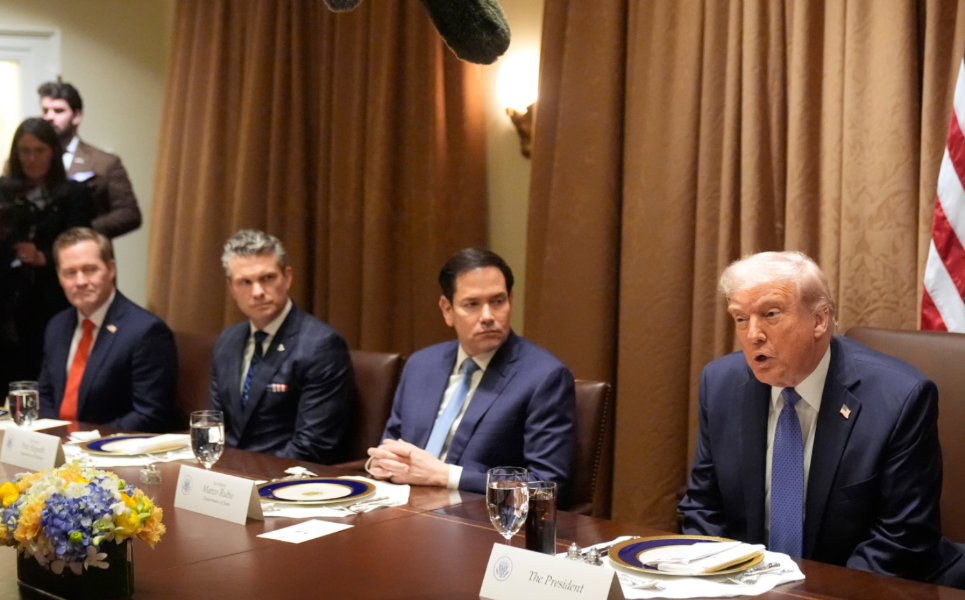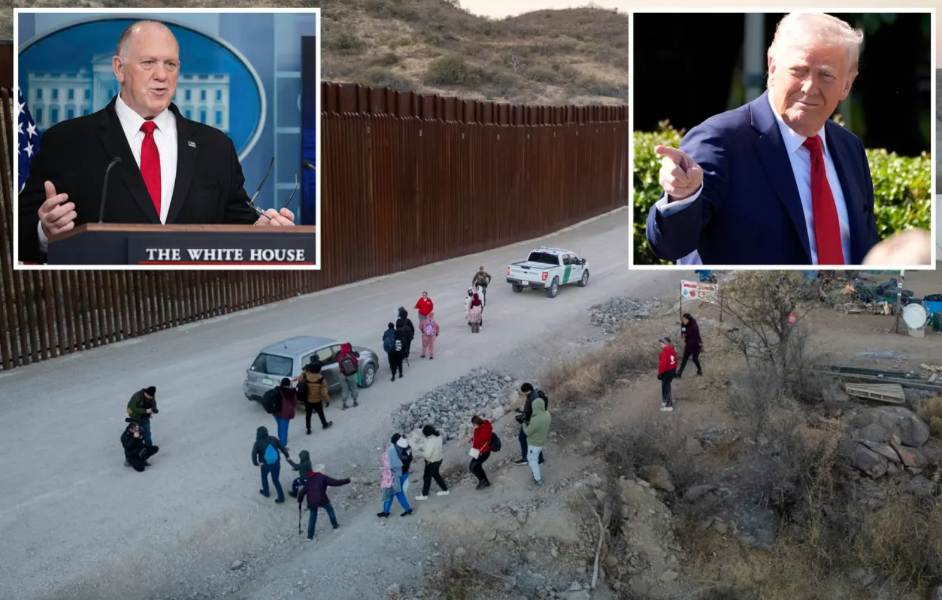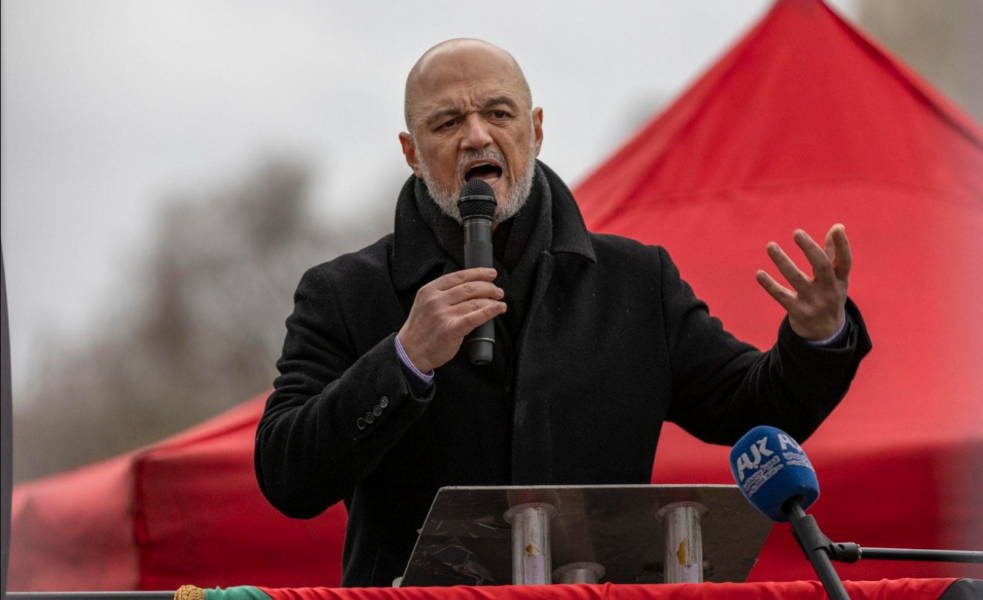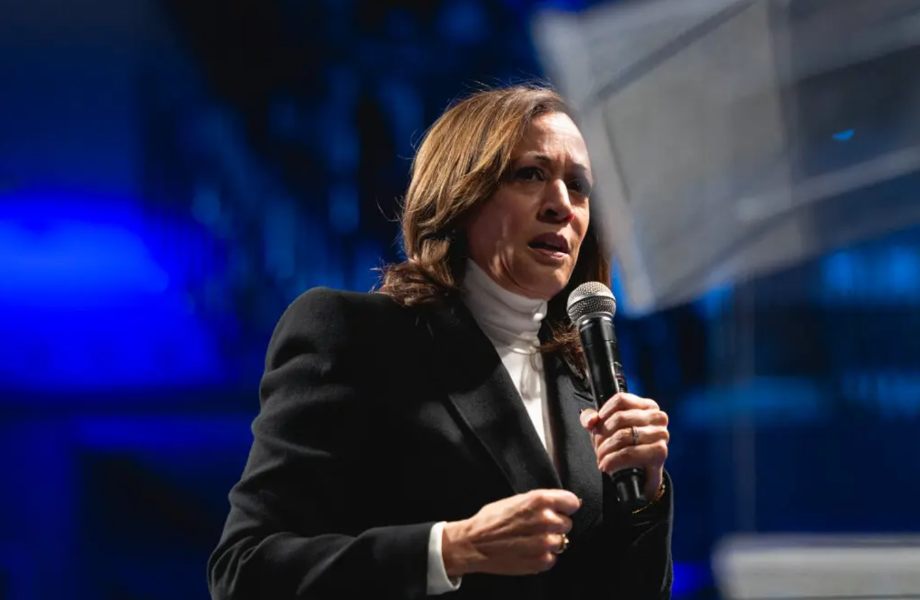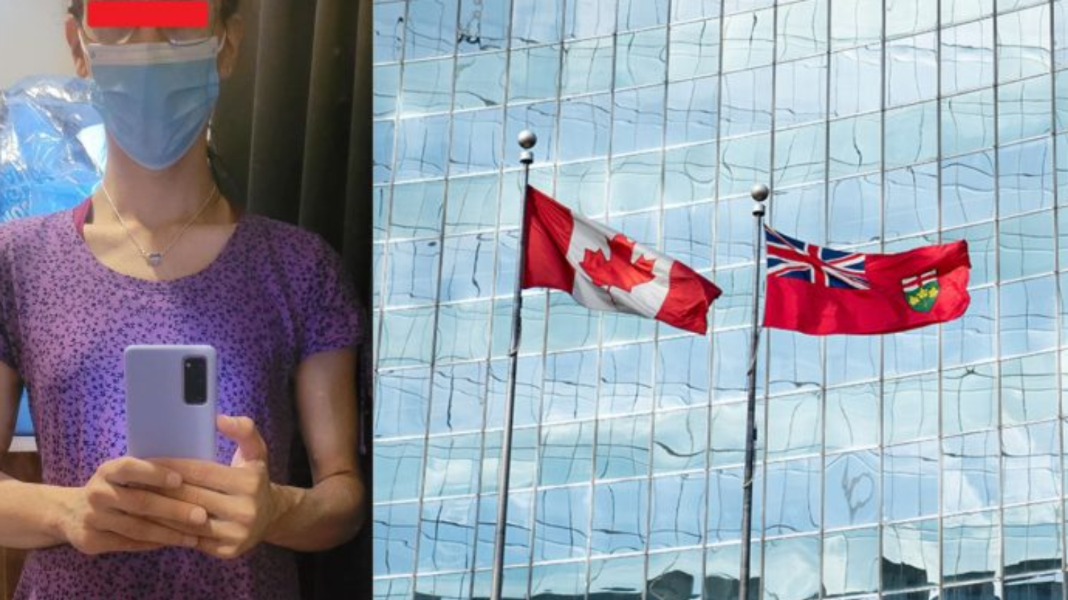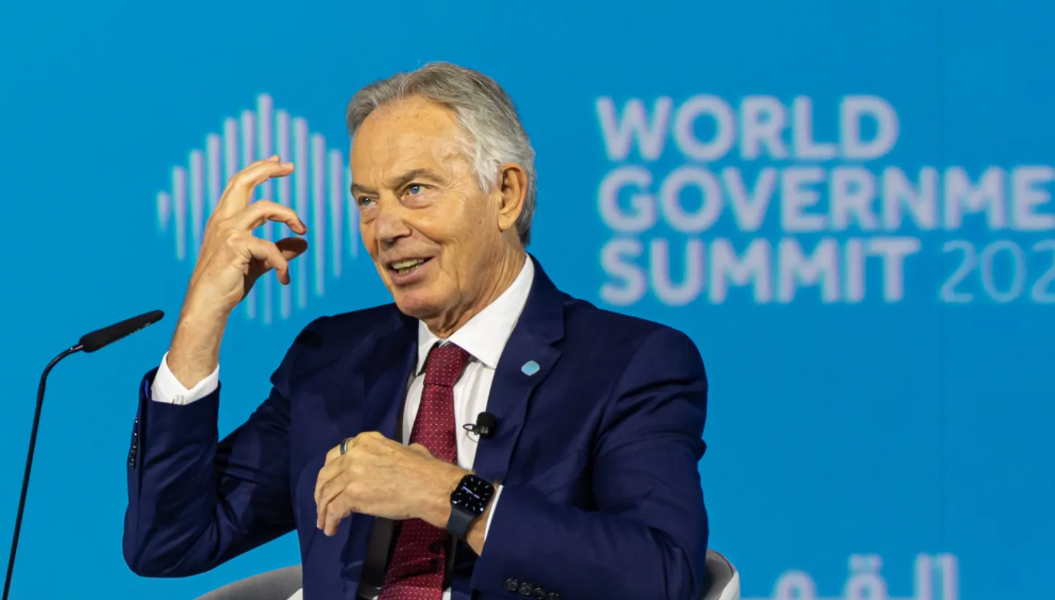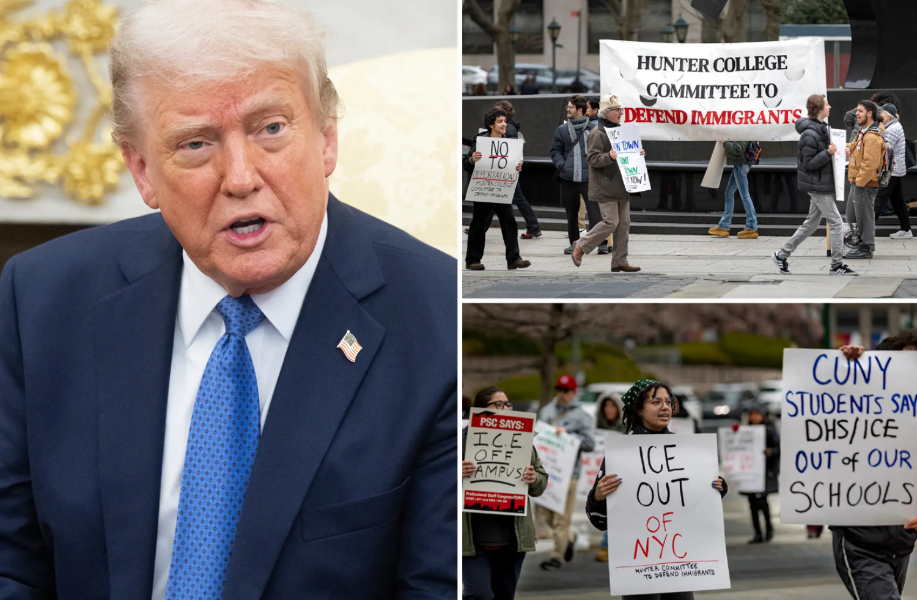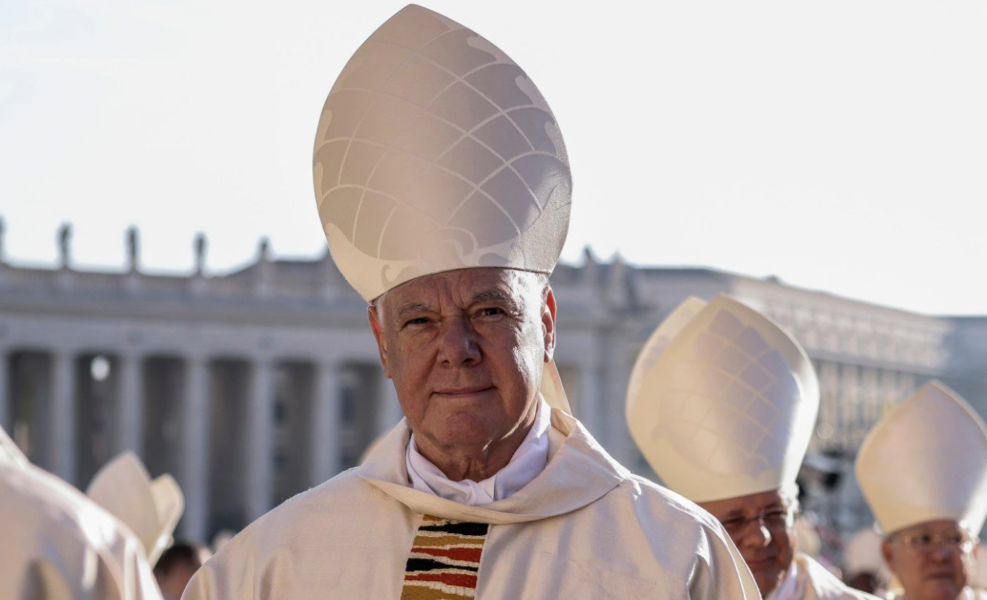-
Posts
10,734 -
Joined
-
Last visited
Content Type
Events
Forums
Downloads
Quizzes
Gallery
Blogs
Everything posted by Social Media
-
Trump Greenlights $50 Million in Military Aid to Ukraine Following Landmark Minerals Agreement President Donald Trump has approved a $50 million military aid package to Ukraine, marking his first such authorization since taking office. The announcement follows the signing of a significant minerals and energy deal between Washington and Kyiv, a move both sides describe as pivotal to future economic and military cooperation. The agreement, finalized during a visit to Washington by Ukraine’s economy minister, comes just days after Trump and Ukrainian President Volodymyr Zelensky held a brief meeting at the Vatican. The minerals deal outlines a profit-sharing arrangement for the future extraction and sale of Ukraine’s vast mineral and energy reserves. Trump had previously framed such a deal as essential compensation for the extensive American aid provided to Ukraine, while Kyiv views it as a pathway to secure continued U.S. support in its struggle against Russian aggression. Shortly after the deal was signed, the White House notified Congress of its intent to authorize “the licence for the export of defence articles, including technical data, and defence services to Ukraine in the amount of $50 million or more.” This move ends a prolonged pause in U.S. military support, with Trump having authorized no new aid since assuming office in January. The previous halt of this magnitude occurred in January of the prior year during a congressional impasse over funding. Since the beginning of the Russian invasion in February 2022, the United States has committed over $65 billion in military assistance to Ukraine. The last major delivery—a $500 million weapons package—was announced by President Joe Biden before he left office. While the direct connection between the new military aid and the minerals deal remains officially unconfirmed, one Ukrainian government insider remarked, “I think it’s significant as a first step of goodwill from Trump after we did what he wanted from us.” President Zelensky described the minerals deal as “historic” and emphasized that it represented a “truly equal agreement.” He linked the development to his conversation with Trump in Rome, stating, “It was the first result of our meeting in the Vatican. We are looking forward to the other results of our conversation.” In response to the developments, Dmitry Medvedev, former Russian president and current deputy chairman of Russia’s national security council, accused Trump of forcing Ukraine to “pay for military supplies with the national wealth of a disappearing country.” On Telegram, he wrote that the agreement meant “they will have to pay for military supplies with the national wealth of a disappearing country.” Russian state media outlet Tass warned of the long-term implications for Moscow. Sergey Oznobishchev, a military-political analyst at the Primakov Institute, stated, “Ukraine is falling into the hands of the United States, which will increasingly establish itself there. The very fact of Washington’s legal presence next to us creates potential problems for us.” Scott Bessent, the U.S. Treasury secretary, heralded the agreement as the beginning of a “historic economic partnership” and declared that it “signals clearly to Russia that the Trump administration is committed to a peace process centred on a free, sovereign and prosperous Ukraine.” Bessent added, “President Trump envisioned this partnership between the American people and the Ukrainian people to show both sides’ commitment to lasting peace and prosperity in Ukraine. And to be clear, no state or person who financed or supplied the Russian war machine will be allowed to benefit from the reconstruction of Ukraine.” According to President Zelensky, about one-third of Ukraine’s military hardware since the Russian invasion has come from the United States. Ukrainian lawmaker Oleksandr Merezhko, chairman of the parliamentary foreign affairs committee, described the minerals deal as a “win-win” scenario. “The more American economic interests are in our economy, the better chances are for our survival,” he said. “I hope that this deal will open the way for Ukraine to receive more military assistance from the United States.” Adpated by ASEAN Now from CNN 2025-05-03
-
FA to Enforce Ban on Transgender Women in Women’s Football Following Legal Ruling From June 1, transgender women will no longer be allowed to participate in women’s football in England at any level, following a landmark decision by the Football Association (FA). This new regulation, announced in response to a Supreme Court ruling on April 16, marks a significant shift in the governing body’s stance on transgender inclusion in sport. Until now, the FA had permitted transgender women to play in amateur women’s leagues if they had maintained reduced testosterone levels—below 5nmol per litre—for at least 12 months. However, the legal redefinition of “woman” has compelled the FA to revise its policy. “The Supreme Court’s ruling on the 16 April means that we will be changing our policy. Transgender women will no longer be able to play in women’s football in England, and this policy will be implemented from June 1, 2025,” said the FA. Acknowledging the impact of the decision, the FA continued, “We understand that this will be difficult for people who simply want to play the game they love in the gender by which they identify, and we are contacting the registered transgender women currently playing to explain the changes and how they can continue to stay involved in the game.” The FA emphasized that it must act within the framework of both UK law and international football policy as set by UEFA and FIFA. “Our current policy, which allows transgender women to participate in the women’s game, was based on this principle and supported by expert legal advice,” the FA explained. “This is a complex subject, and our position has always been that if there was a material change in law, science, or the operation of the policy in grassroots football then we would review it and change it if necessary.” The move aligns football with several other sports, such as rugby union and hockey, which have already restricted women’s competitions to those born female. Fiona McAnena, director of campaigns at advocacy group Sex Matters, welcomed the decision, stating, “This is welcome but long overdue. The FA has had ample evidence of the harms to women and girls caused by its nonsensical policy of letting men who identify as women play in women’s teams. The requirement to lower their testosterone tells you that everyone knew they were not women.” She continued, “Thankfully, the UK Supreme Court has now confirmed this, saying it is lawful to exclude ‘all men, including trans women, regardless of their GRC status.’ Every other sporting body now needs to re-establish a genuine women’s category, and this shameful period in history will finally be brought to an end.” Currently, around 20 transgender women play amateur football in England under the April 1 rules. While FIFA only mandates reduced testosterone levels, there have been no known cases of transgender women seeking to play at elite or international levels in England. Canadian international Quinn, who identifies as transgender and non-binary, continues to play in women’s football, having been born female. The policy shift comes amid rising tensions and scrutiny around trans inclusion in sports. In September, Sutton United’s women’s team postponed a match following backlash over the inclusion of transgender goalkeeper Blair Hamilton. Sutton’s manager Lucy Clark, the first openly trans referee in English football, took the helm in January 2024. In another incident, a 17-year-old girl was suspended for two matches after repeatedly asking a transgender opponent, “Are you a man?” during a grassroots game, prompting a protest outside Wembley Stadium. The England and Wales Cricket Board (ECB) is also expected to follow suit. The ECB currently allows self-identification at amateur levels, but after adopting stricter rules for professional cricket in line with the International Cricket Council, its directors are set to vote on whether to extend the ban to all levels of the women’s game. If approved, players who have undergone male puberty will no longer be allowed to compete in women’s or girls’ cricket, whether professional or recreational. As sporting bodies across the UK respond to legal and public pressure, the FA’s decision may be a harbinger of broader changes ahead, reshaping participation and inclusion across the sporting landscape. Related Topics: Cricket Authorities Ban on Transgender Women in Female Competitions Following Legal Ruling Adpated by ASEAN Now from The Times 2025-05-03
-
Press Regulator Sides with Columnist Allison Pearson in Dispute with Essex Police In a ruling that has sparked renewed scrutiny of police conduct, the Independent Press Standards Organisation (Ipso) has dismissed a complaint by Essex Police over reporting related to a high-profile columnist’s clash with the force. Allison Pearson, a columnist for The Telegraph, was cleared by the regulator after Essex Police challenged the accuracy of reports about an unannounced visit by officers to her home on Remembrance Sunday last year. The dispute centers on a tweet Pearson had posted and later deleted, which a complainant claimed had incited racial hatred. Nearly a year after the tweet was removed, Pearson was visited at home by two police officers, who informed her she was under investigation. Pearson later wrote in her column that she had been told she was being investigated for a non-crime hate incident (NCHI), a designation used when police document actions perceived to be motivated by hate but that fall short of criminality. However, Essex Police claimed she was actually being investigated for a criminal offence, and subsequently filed a complaint with Ipso accusing The Telegraph of publishing inaccurate information. But Ipso found the police complaint to be without merit. In its judgment, the regulator emphasized that The Telegraph had appropriately included Essex Police’s official statement — which confirmed the investigation was into a criminal offence — while also reporting Pearson’s personal account of the encounter. According to Ipso, “care had been taken not to publish inaccurate information” because The Telegraph had sought comment from the police before publication, and the force had not disputed or corrected Pearson’s recollection of what officers told her during the visit. Mark Lewis, Pearson’s legal representative, expressed disbelief that the police had chosen to escalate the matter to the press regulator in the first place. “I was bemused as to why the police found it appropriate to file a report to a regulator,” he said. He added that the Ipso ruling would now allow Pearson’s legal team to move forward with her claim against Essex Police and the Essex Police and Crime Commissioner for damages. Pearson herself welcomed the decision and reiterated her commitment to holding the police accountable. “I am delighted that Ipso has confirmed I was entitled to tell the public what happened to me on the morning of Remembrance Sunday over a tweet deleted a year earlier. I felt it was in the public interest, and still do,” she said. “My legal team will now pursue my case against Essex Police and the commissioner of police.” The case has stirred broader debate about freedom of the press, the definition and use of non-crime hate incidents, and how police interact with journalists. Critics argue the visit to Pearson’s home and the force’s subsequent complaint to a media regulator raise serious concerns about proportionality and accountability in law enforcement. Essex Police, which has been contacted for comment, has so far not issued a public response to the Ipso ruling. Related Topics: A Police Visit on Remembrance Sunday Reveals the Reality of Our Two-Tier Justice System Female Journalists Rally Around Allison Pearson Amid Fears for Press Freedom Police Face Criticism Over Internal Review Clearing Essex Force Adpated by ASEAN Now from The Telegraph 2025-05-03
-
A controversial court decision in Massachusetts has ignited public debate after a judge allowed a suspect accused of firebombing a Tesla dealership to await trial under supervised home release. The move, made by Judge Jessica Hedges, has drawn criticism for what many see as excessive leniency in a case involving politically motivated property destruction. The defendant, Owen McIntire, faces serious charges after allegedly setting fire to vehicles at a Tesla dealership, resulting in hundreds of thousands of dollars in damages. Authorities say the act was carried out in protest against the politics of Elon Musk, the CEO of Tesla. While no injuries were reported, the incident has been described by critics as highly dangerous and ideologically driven. “It’s only by a miracle no one was maimed or killed; this is no different from throwing molotovs through the window of a mosque or synagogue,” one observer noted, underscoring the perceived severity of McIntire’s actions. Yet, rather than being held in custody, McIntire was granted home release to ensure continued access to cross-gender hormone treatment, as well as medication for autism and ADHD. This decision has been described by some as a stark example of judicial bias, with accusations that the court is prioritizing the defendant’s identity and personal circumstances over public safety. “Judge Jessica Hedges had more sympathy for the accused terrorist than the victims and potential victims,” one critic charged. “It’s impossible to imagine this or any other judge being this lenient on a right-wing terrorist.” The backlash has also pointed to what some see as a broader pattern of perceived partiality within the judiciary. Citing previous incidents, critics referenced Hennepin County District Attorney Mary Moriarty’s decision not to pursue jail time for a Minnesota government employee who vandalized Teslas across Minneapolis, causing approximately $20,000 in damage. This, they argue, is part of a troubling trend in which individuals who commit politically charged acts against conservative targets receive more favorable treatment. Critics have extended their scrutiny to judges beyond Massachusetts and Minnesota. Milwaukee’s Hannah Dugan was mentioned as another example, after she was accused of misusing her position to shield an undocumented immigrant and was later temporarily stripped of her authority by the state court system. Federal judges such as James Boasberg of the DC Circuit have also faced criticism for issuing broad injunctions against presidential policies, with detractors claiming such actions exceed proper judicial bounds. As for Hedges, the criticism remains pointed. “Hedges is sending a signal: Go ahead, boys and girls. Throw your tantrums, set things on fire, and I’ll make sure all you get is a slap on the wrist,” one commenter remarked, reflecting the frustrations of those who see a double standard in how justice is being administered. Calls are now growing louder for accountability and balance in the judicial system. “America would be a better place if that also happens to Hedges — and any other bench-sitter giving a thumbs-up to crimes as long as they’re anti-Trump,” another critic concluded, capturing the deep divide over how ideology and identity are influencing outcomes in American courts. Adapted by ASEAN Now from NYP 2025-05-03
- 86 replies
-
- 15
-

-

-

-

-
Apple has announced a significant shift in its global manufacturing strategy, revealing that most iPhones and other key products destined for the United States will no longer be made in China. This move marks a major development in the company’s efforts to diversify its supply chain in response to trade tensions and mounting tariff pressures from the U.S. government. According to Apple CEO Tim Cook, India is set to become the primary hub for iPhone production for the American market. “We do expect the majority of iPhones sold in [the] US will have India as their country of origin,” Cook told investors during a recent earnings call. Meanwhile, Vietnam is emerging as the central production site for a range of other Apple products, including iPads, Mac computers, Apple Watches, and AirPods. “Vietnam will be the chief manufacturing hub for almost all iPad, Mac, Apple Watch and AirPods product sold in the US,” Cook added. This strategic reallocation of manufacturing operations appears to be a response to tariffs imposed under the administration of former President Donald Trump, which targeted products made in China. Although the Trump administration had long advocated for Apple to bring production back to the United States, the company has instead chosen to strengthen its presence in other Asian countries while making substantial investments on U.S. soil. During the investor call, Cook highlighted Apple’s domestic economic contributions, beginning the discussion by reiterating the company’s plan to invest $500 billion across several U.S. states over the next four years. This commitment signals that while production may be shifting internationally, Apple remains focused on maintaining a significant economic footprint in America. China, however, will not be entirely cut out of the equation. Cook confirmed that it will remain the main manufacturing source for Apple products sold outside the United States. “China will remain the country of origin for the vast majority of total products sold outside the US,” he noted. Apple’s latest financial report reflects resilience in the face of geopolitical and trade uncertainties. The tech giant posted its highest March-quarter revenue in over two years, with sales rising 5% to $95 billion. Net income climbed to $24.8 billion, up nearly 5% compared to the same quarter last year. Analysts attributed part of this growth to consumers rushing to purchase Apple products before new tariffs took effect in April, as well as strong demand for the newly launched iPhone 16e — a lower-end model featuring limited artificial intelligence capabilities. Industry experts have been watching Apple’s manufacturing shift closely. Patrick Moorhead, CEO of Moor Insights & Strategy, called the company’s production move “impressive,” especially given previous remarks by Tim Cook that only China had the infrastructure to build iPhones. “This is a marked change from what [Cook] said a few years back when he said that only China can build iPhones,” Moorhead said. “There is lots of progress that Apple must show here but it's a pretty good start.” Other tech giants are also navigating the evolving trade landscape. Amazon, for instance, has managed to weather the tariff storm, reporting an 8% increase in sales year-on-year in its North American e-commerce business. Overall, Amazon’s sales rose 9% to $155.7 billion in the first quarter of 2025, with profits soaring more than 60% to approximately $17 billion. Company executives even suggested that consumer stockpiling in anticipation of tariffs may have contributed to the strong numbers. Adpated by ASEAN Now from BBC 2025-05-03
-
Satirical Art Silenced: ‘Licence to Offend’ Exhibition Cancelled Over Fear of Offence A political cartoon exhibition featuring works by some of Britain's most renowned cartoonists, including Morten Morland of The Times, has been abruptly cancelled just hours before its private launch. The event, titled Licence to Offend, was set to showcase a range of satirical works that have already appeared in major national newspapers. But despite months of planning, the show was shut down over concerns it might cause offence, prompting fierce criticism from the artists and curators involved. Scheduled to open to the public on Thursday in Kingston upon Thames, southwest London, the exhibition was halted at the eleventh hour by TownSq, a co-working venue that had agreed to host the event. Guests who were due to attend a private viewing on Wednesday were informed not to come after the venue reversed its decision, citing potential backlash and staff safety. The exhibition included pieces by Morten Morland of The Times, Mac and Pugh of the Mail titles, Patrick Blower of The Daily Telegraph, and Martin Rowson of The Guardian. The cartoons, already published in their respective outlets, offered satirical portrayals of public figures such as Donald Trump, Sir Keir Starmer, Elon Musk, and Mark Zuckerberg. Morland, who has worked with The Times since 2002, condemned the decision as “idiotic.” “These weren’t offensive cartoons. They were cartoons that had already been printed in national newspapers. I’ve never experienced anything like it. It’s an idiotic decision on so many levels,” he said. He took particular issue with the rationale provided by TownSq, which described its need to maintain a “politically neutral environment.” In response, Morland said, “The decision to deny freedom of expression is in itself a hugely political act.” He further argued that cancelling an exhibition based on hypothetical offence is a dangerous precedent. “This shuts down any discourse before it’s even been allowed to happen under the pretext that someone somewhere might have objections to something,” he said. “That is surely a much more offensive concept.” TownSq defended its decision, saying the level of discord the exhibition generated confirmed the need to avoid politically charged content in its space. “The fervour and discord around this event has been a testament as to why,” a spokesperson said. “This was not a decision that we took lightly, and we’re frustrated that it needed to be taken at all. We admire the artists’ work and the months of effort that [went] into curating it, but the conditions created following it meant it would be unsafe to host the exhibition.” Zoe Dorelli, the curator of the exhibition, expressed deep disappointment at the cancellation. “It’s quite amazing that we pulled together most of the best cartoonists that are working at the moment,” she said. “One should be sort of celebrating this kind of thing and not pulling it.” She described the cancellation as a blow not just to the artists, but to the broader principle of free expression in the arts. Whitelight Projects, the organiser behind Licence to Offend, is now actively seeking an alternative venue to host the exhibition. Dorelli confirmed that several offers are under consideration, suggesting that the show may yet find a stage where its voice—and the voices of its artists—can be heard. Adpated by ASEAN Now from The Times 2025-05-03
-
Cricket Authorities Enforce Ban on Transgender Women in Female Competitions Following Legal Ruling Transgender women have been officially barred from participating in female cricket competitions in England and Wales, following a decisive move by the England and Wales Cricket Board (ECB). The ruling, effective immediately, comes in response to a recent Supreme Court decision that redefined the legal understanding of "woman" and "sex" under the UK Equality Act 2010, asserting that these terms refer exclusively to biological sex. The ECB stated that “only those whose biological sex is female will be eligible to play in women’s cricket and girls’ cricket matches.” While transgender women and girls are no longer permitted in these categories, they will still be eligible to compete in open and mixed-gender cricket matches. The board explained that its decision was shaped by new legal advice following last month’s ruling, which it described as having a significant bearing on how equality law must now be interpreted within sport. “Given the new advice received about the impact of the Supreme Court ruling, we believe the changes announced today are necessary,” the ECB said in its statement. Despite the exclusion, the board reiterated its commitment to inclusivity and to providing ongoing support to those affected by the new regulations. “Our regulations have always aimed to ensure cricket is as inclusive a sport as possible,” the statement read. The ruling by the UK Supreme Court marked a significant shift in the legal landscape. In a unanimous decision, the court concluded that “a woman” and “sex” under the Equality Act 2010 must be interpreted as meaning “a biological woman and biological sex.” This interpretation has had wide-reaching implications across UK sports, prompting governing bodies to reevaluate their inclusion policies. The ECB acknowledged the emotional and personal impact the new policy would have on transgender players but emphasized that it will work closely with recreational cricket organizations to navigate the transition. “We understand this decision will have a significant impact on transgender women and girls. We are committed to supporting people impacted by this change,” it stated. The cricket board also took the opportunity to underline its stance against prejudice, saying that “abuse and discrimination have no place in our sport” and that cricket should always be played “in a spirit of respect and inclusivity.” The ECB’s announcement aligns it with similar measures recently introduced by other sports bodies. Just a day earlier, England’s Football Association declared that transgender women would no longer be permitted to participate in the women's game. In Scotland, the national football association implemented a similar ban earlier this week. Meanwhile, the Football Association of Wales indicated that it is awaiting further sector guidance before finalizing its stance. This broader trend follows moves in international athletics, cricket, and rugby to implement blanket bans on transgender women competing in female categories. These changes mark a significant moment in the ongoing debate over fairness, inclusion, and the evolving legal interpretations of gender in competitive sports. Related Topics: FA to Enforce Ban on Transgender Women in Women’s Football Following Legal Ruling Adpated by ASEAN Now from Sky News 2025-05-03
-
@MicroB an inflammatory post with false claims and numerous unsubstaniated claims including references to the OP has been removed. 17. ASEAN NOW news team collects news articles from various recognised and reputable news sources. The articles may be consolidated from different sources and rewritten with AI assistance These news items are shared in our forums for members to stay informed and engaged. Our dedicated news team puts in the effort to deliver quality content, and we ask for your respect in return. Any disrespectful comments about our news articles or the content itself, such as calling it "clickbait" or “slow news day”, and criticising grammatical errors, will not be tolerated and appropriate action will be taken. Please note that republished articles may contain errors or opinions that do not reflect the views of ASEAN NOW. If you'd like to help us, and you see an error with an article, then please use the report function so that we can attend to it promptly.
-
Gaza’s Last Lifeline: Kitchens Struggle as Food Supplies Dwindle In the embattled Gaza Strip, a simple hot meal has become a rare and precious commodity. In the southern city of Khan Younis, a donkey cart prepares to carry a hot lunch of koshari—lentils, rice, and tomato sauce—to displaced families. This meal, humble yet nourishing, comes from one of only two community kitchens operated by American Near East Refugee Aid (Anera), a US-based humanitarian organization. "People rely on our meals; they have no source of income to buy what's left in the local markets and many foods are not available," says Sami Matar, who leads the Anera team. With borders shut and resources drying up, he warns, “The coming days will be critical. We expect we have two weeks' supply, maybe less.” Once able to serve meals that included meat, the kitchen now works only with basic ingredients. “In the past we used to cook rice with meat – with protein. Now, because of the closure, there's no type of meat, no fresh vegetables,” Matar adds. The situation is worsening daily as Gaza's supply chains have collapsed under Israel’s months-long blockade—its most extensive ever. International outcry is mounting. Humanitarian agencies and the United Nations have sounded alarms about impending mass starvation. "Aid, and the civilian lives it saves, should never be a bargaining chip," said the UN's humanitarian chief Tom Fletcher. "Blocking aid starves civilians. It leaves them without basic medical support. It strips them of dignity and hope. It inflicts a cruel collective punishment. Blocking aid kills." The Anera kitchen in Khan Younis alone feeds about 6,000 people a day, part of a fragile network of a few dozen remaining kitchens across Gaza. These kitchens are now the last resort for hundreds of thousands of people who have lost access to food. Much of the food used in recent months had been stockpiled during a temporary ceasefire earlier in the year. Those reserves are now nearly exhausted. While Israel maintains that it has allowed more than 25,000 aid trucks into Gaza, carrying nearly 450,000 tonnes of goods, it also accuses Hamas of diverting supplies for fighters or selling them for profit. However, the UN and various aid agencies have consistently rejected these claims, asserting that their distribution networks are carefully monitored. Hamas terror militias are looting warehouses and storage facilities that have food supplies meant for the Palestinian civilian population in Gaza City. They've killed several civilians trying to stop their theft and are on a frenzied rampage to steal what little food remains. "We work hard to avoid any interference from any parties. We have an accurate and strong distribution process," Matar affirms as he checks lists of aid recipients on his computer. Despite these efforts, reports have emerged this week of looting at five warehouses and at the main UNRWA complex in Gaza. In the field kitchen, the air is thick with steam and urgency. Matar inspects the food to ensure quality before parcels are wrapped—each enough for a family of four. Workers, all of whom receive food to feed their own families, swiftly load the parcels onto the waiting cart. The food is then taken to al-Mawasi, a crowded tent settlement along the coast where displaced families cling to survival. Field monitors oversee distribution as the needy gather. Among them is an elderly man on crutches, his face lighting up with relief as he secures two parcels of food. "Thank God, this will be enough," he says, clutching the containers meant for his family of seven. While aid supplies accumulate at Gaza’s border crossings, distribution inside the enclave is slowed by shortages, logistics, and the sheer scale of need. Israeli officials have signaled plans to reform the aid delivery system, but for now, Gaza’s kitchens are hanging by a thread, eking out the last of their supplies in hopes that help might still come in time. In al-Mawasi, as children gather around the Anera workers distributing food, their laughter briefly lifts the heavy silence of hunger. But behind their joy is a deep uncertainty—how long before even this last line of support runs out? Adpated by ASEAN Now from BBC | X 2025-05-02
-
@josephbloggs you post was removed: 17. ASEAN NOW news team collects news articles from various recognised and reputable news sources. The articles may be consolidated from different sources and rewritten with AI assistance These news items are shared in our forums for members to stay informed and engaged. Our dedicated news team puts in the effort to deliver quality content, and we ask for your respect in return. Any disrespectful comments about our news articles or the content itself, such as calling it "clickbait" or “slow news day”, and criticising grammatical errors, will not be tolerated and appropriate action will be taken. Please note that republished articles may contain errors or opinions that do not reflect the views of ASEAN NOW. If you'd like to help us, and you see an error with an article, then please use the report function so that we can attend to it promptly.
-
Trump Taps Mike Waltz for U.N. Ambassador Role Amid Signal Chat Controversy Former national security adviser Mike Waltz is poised to take on a new diplomatic role following President Donald Trump’s announcement that he intends to nominate Waltz as the next U.S. ambassador to the United Nations. The move comes despite recent controversy involving Waltz and a high-level messaging group mishap that drew scrutiny over national security procedures. “From his time in uniform on the battlefield, in Congress and, as my National Security Advisor, Mike Waltz has worked hard to put our Nation’s Interests first. I know he will do the same in his new role,” Trump posted on Truth Social. Secretary of State Marco Rubio has been named interim national security adviser, taking on the role alongside his other duties. Responding to the nomination, Waltz wrote on X, “I’m deeply honored to continue my service to President Trump and our great nation.” Waltz, who previously served as a congressman from Florida, had been on uncertain footing within the administration since March. At the time, he mistakenly added a journalist, Jeffrey Goldberg, editor-in-chief of The Atlantic, to a private Signal chat among national security officials that included discussions of military strikes in Yemen. The error, which quickly became public, fueled concerns over the handling of sensitive information. “I take full responsibility. I built the — I built the group,” Waltz said in a March interview with Laura Ingraham on Fox News. “My job is to make sure everything’s coordinated.” Initially, Trump defended Waltz, telling NBC News, “Michael Waltz has learned a lesson, and he’s a good man.” But his support appeared to cool in recent weeks. Speaking to The Atlantic, Trump emphasized that Defense Secretary Pete Hegseth, who also participated in the chat, was “safe.” When asked if Hegseth would outlast Waltz, Trump said, “Waltz is fine. I mean, he’s here. He just left this office. He’s fine. He was beat up also.” Despite public assurances, sources close to the administration revealed that Trump had privately expressed frustration with Waltz in the aftermath of the incident. Waltz was noticeably absent from a Rose Garden ceremony attended by senior officials, and he went unmentioned during Trump’s remarks. Senate Minority Leader Chuck Schumer criticized the administration’s response, arguing that both Waltz and Hegseth should be held accountable. “Look, they should fire him, but they’re firing the wrong guy. They should be firing Hegseth,” Schumer said. Waltz, meanwhile, remained loyal. At a Cabinet meeting on Wednesday, he praised Trump’s leadership, saying, “We’ve had 100 days of your leadership, with respect, with strength. It’s an honor to serve you in this administration, and I think the world is far better and far safer for it.” Previously considered for the U.N. ambassador post was Rep. Elise Stefanik, but Trump withdrew her nomination in March, citing the narrow Republican majority in the House. “She is phenomenal, number one. She is a friend of mine,” Trump said, “but we have a slim margin. We don’t want to take any chances.” Waltz’s nomination must be confirmed by the Senate, unlike his former post as national security adviser. The Signal chat episode is expected to be a point of contention during confirmation hearings. As a legislator, Waltz had advocated for a traditional conservative approach to foreign policy but gradually aligned with Trump’s more transactional worldview. He was seen as a balancing voice on Ukraine policy, favoring continued military aid while pushing for a diplomatic resolution. However, Trump has repeatedly voiced criticism of Ukraine and its president, Volodymyr Zelenskyy, often rejecting calls for increased support. Waltz also struggled to maintain influence within the administration, often sidelined by Trump’s unpredictability and the rising prominence of special envoy Steve Witkoff, who has been central in talks with Vladimir Putin and Middle Eastern leaders. Trump’s appointment of Rubio to serve as interim national security adviser marks his third temporary leadership role this year. “Marco, when I have a problem, I call up Marco. He gets it solved,” Trump said at the Rose Garden event. Waltz’s future now rests in the hands of the Senate, where his ability to navigate a contentious confirmation process will determine whether he can represent the U.S. on the world stage at the United Nations. Adpated by ASEAN Now from NBC 2025-05-02
-
Trump Administration Explores Migrant Transfers to Libya and Rwanda Amid Legal and Human Rights Concerns The Trump administration is actively exploring plans to send certain migrants from the United States to Libya and Rwanda, according to multiple sources familiar with the discussions. These proposals, still in preliminary stages, would involve deporting migrants with criminal records to these third countries as part of a broader strategy to deter immigration and reduce the domestic burden of housing and processing undocumented individuals. This represents a significant escalation of the administration’s immigration policies. President Donald Trump signed an executive order in January instructing top officials to establish international agreements that would allow the U.S. to redirect asylum seekers to third countries. Talks have since included not only deportations of individuals with criminal histories but also the potential creation of a "safe third country" agreement with Libya. Such an arrangement would permit the U.S. to send asylum seekers caught at the border directly to Libya, bypassing the traditional asylum process. The U.S. State Department has reportedly initiated discussions with officials from both Libya and Rwanda. This week, senior American officials met with Libyan representatives, including General Saddam Haftar, who was in Washington for consultations. While the idea remains under discussion, it is unclear which nationalities would fall under the potential policy or how it would be implemented. CNN has reached out to the State Department and Libyan officials for comment, but no official statements have been made public. Secretary of State Marco Rubio confirmed the administration’s active search for partner nations. “I say this unapologetically, we are actively searching for other countries to take people from third countries,” Rubio stated during a Cabinet meeting. “We are working with other countries to say, ‘We want to send you some of the most despicable human beings to your countries — will you do that as a favor to us?’ And the further away from America, the better, so they can’t come back across the border.” Rwanda, which had earlier expressed willingness to engage in such discussions, is now back in negotiations with the U.S. about accepting migrants with criminal backgrounds who have already served their sentences. Unlike arrangements with other nations, sources said Rwanda would not imprison these individuals but instead integrate them into society by offering a stipend and employment assistance. The cost per deportee to Rwanda is expected to be higher than in countries like El Salvador, due to the inclusion of social support services. One such transfer has already occurred. In March, the U.S. deported Omar Abdulsattar Ameen, a refugee from Iraq, to Rwanda in what sources described as a potential model for future deportations. The groundwork for these discussions dates back to early in Trump’s term, when the administration circulated diplomatic notes to countries worldwide to gauge interest in receiving deported migrants. Rwanda was among the few nations that signaled openness to such cooperation. This is not uncharted territory for Rwanda. In 2022, it entered into an agreement with the United Kingdom to accept asylum seekers deported from the UK, although the plan was ultimately scrapped in 2024 by Prime Minister Keir Starmer, who labeled the effort a “gimmick.” The Trump administration’s intentions face legal hurdles. Just last month, a federal judge issued a temporary block on deportations to third countries without prior notice and an opportunity for the deportees to contest the transfer. Additionally, the choice of Libya has drawn international scrutiny due to the country’s longstanding record of human rights abuses. A 2024 United Nations report condemned Libya for systemic violations, including allegations of torture, rape, and forced labor in detention centers holding migrants. Despite the controversy, the administration continues to frame the policy as a tool for safeguarding American borders and alleviating pressure on the U.S. immigration system. Whether these deals come to fruition remains uncertain, but they are already drawing attention from human rights advocates and legal experts who warn of profound humanitarian and legal implications. Adpated by ASEAN Now from CNN 2025-05-02
-
Prisons on Alert as Fears Mount Over Islamist-Inspired Attacks This Summer Concerns are mounting within the prison system after a violent assault by the Manchester Arena bomber’s brother raised alarm over the growing threat of Islamist-inspired attacks behind bars. The prison service is bracing for further violence this summer, fearing that extremist inmates may exploit the chaos and vulnerabilities of Britain’s overcrowded prison system. Hashem Abedi, who is serving a 55-year sentence for his role in helping his brother Salman carry out the 2017 suicide bombing that killed 22 people at Manchester Arena, launched a brutal attack on three prison officers at HMP Frankland in County Durham on April 12. He hurled scalding cooking oil at them and used improvised weapons to stab them. The incident occurred inside the prison’s separation centre, a highly secure unit designed to isolate radicalised inmates and prevent them from influencing others. The following day, another violent event unfolded at HMP Whitemoor in Cambridgeshire, where a prisoner was arrested on suspicion of murder after a fellow inmate, a convicted killer, was found dead. A police investigation is ongoing, though authorities are not under urgent pressure to charge the suspect since he is already incarcerated. A senior source within the prison service acknowledged that there is “real concern” extremists could take advantage of the current overcrowding crisis to commit more attacks. This fear is compounded by lapses in protocol and deteriorating safety standards in some high-security prisons, particularly HMP Belmarsh, where Abedi was transferred following the Frankland attack. Abedi had previously assaulted guards at Belmarsh in 2020. A whistleblower at Belmarsh told The Times that staff have increasingly seen risk being “poorly managed” or “accepted without effective control measures.” One example cited was the unlocking of high-security prisoners when staffing was minimal—against established procedures requiring all inmates to be securely contained during such times. The whistleblower also highlighted incidents of inmates being allowed into restricted zones, such as the space between the inner and outer prison fences, despite security regulations. The whistleblower criticized management for focusing on “short-term targets” and “image and appearance,” rather than prioritizing safety. “Proper behaviour management” and adherence to security protocols have been undermined, they said. Robert Jenrick, the shadow justice secretary, urged swift and decisive action to tackle extremism in prisons. “The attacks at HMP Frankland must be a fundamental turning point in how the prison service contains extremist prisoners and protects prison officers,” he said. “As former governors have warned, unless the Ministry of Justice makes radical changes now, we face the very real risk that an officer might lose their life.” In response to the growing criticism, the Ministry of Justice strongly denied that safety was being sacrificed for superficial goals. A spokesman said: “We wholly refute the suggestion that prison service management is prioritising short-term target setting, image and appearance and misjudging the risk posed by the dangerous offenders in custody. We will do whatever it takes to protect our hardworking staff, and we are going even further.” Measures now being considered include an operational trial of tasers and a rapid review into providing body armour for frontline staff. A full independent inquiry into the Frankland incident is also underway. The attack has also triggered a counterterrorism investigation into whether radical Islamist preacher Anjem Choudary influenced Abedi. Choudary was among six inmates housed in the same separation unit as Abedi. According to prison sources, other inmates appeared to know about the planned attack and created a diversion by gathering in the prison gym. “They knew something was going on and were grinning and smiling,” a source told The Times, adding that the tactic left only three officers to supervise Abedi in the kitchen, where the attack occurred. Adpated by ASEAN Now from The Times 2025-05-02
-
Norway Warns UK Against Abandoning North Sea Energy Norway’s energy minister has urged Britain not to abandon its North Sea oil and gas industry, warning that an overzealous push toward net zero could leave the UK dangerously reliant on energy imports for decades. In a pointed critique of Labour’s current energy policies, Terje Aasland told The Telegraph that Oslo remains fully committed to developing its fossil fuel resources for the long term. “We want to develop [the North Sea] for the long-term, because the oil and gas industry and the service industry is really important,” said Aasland. “It saves jobs and creates a lot of value for Norwegian society. I think in the UK, the oil and gas industry has contributed in just the same way – until now.” Aasland’s comments come in response to UK Energy Secretary Ed Miliband’s decision to halt all new oil and gas exploration in the North Sea, part of Labour’s bid to achieve net zero emissions by 2050. But Norway sees the situation very differently. Aasland, a trained electrician, emphasized that while Norway is investing heavily in renewables, the transition from fossil fuels will take time. In the interim, he expects Norway to continue supplying the UK with oil and gas “for many decades.” Norway’s approach to fossil fuel development has allowed it to build the world’s largest sovereign wealth fund, now worth around £1.3 trillion – approximately £235,000 for every citizen. It is also one of the largest stakeholders in the North Sea, with over 7 billion barrels of proven reserves, and it holds substantial investments in the UK, including large parts of London’s Covent Garden, Regent Street and Soho. The issue of energy security has taken on renewed urgency after widespread blackouts affected parts of Spain, Portugal, and France earlier this week. Spain’s national grid operator, Red Eléctrica, blamed a sharp drop in solar power generation. Critics, including Spanish opposition leader Alberto Núñez Feijóo, accused Prime Minister Pedro Sánchez of putting “green ideology” ahead of the country’s energy needs. Back in the UK, Labour is facing internal strife over its environmental agenda. Sir Tony Blair warned this week that the current net zero policies were “doomed to fail,” a statement that added to the unease. Though he later clarified his support for Labour’s 2050 net zero goal, the incident highlighted growing tensions within the party. Downing Street has refused to confirm whether Miliband will remain in his role through the next general election. Aasland was critical of the economic implications of Labour’s energy stance, including the windfall tax on oil and gas producers, which currently stands at 78 percent. Asked how such a policy would affect Norway’s energy sector, he replied, “We would have seen investments going to other places in the world.” He stressed the importance of consistency in policymaking to encourage investment. “If you want to support industry for the long-term, you have to be predictable, you have to have a stable framework, and you have to work together with the industry,” he said. Norway has taken steps to protect its energy industry, including introducing tax incentives during the pandemic to keep supply chains viable and encourage new development. As a result, the country’s oil and gas production remains strong. “Last year, we produced 124bn cubic metres of gas that we exported to the European market,” said Aasland. “Norwegian production is now at a peak and will stay there for three to five years.” With the UK scaling back its own output, Norway has become Britain’s primary gas supplier. In the year leading up to September 2024, Britain imported 29 billion cubic metres of gas from Norway at a cost of £10 billion, with another £10 billion spent on Norwegian oil. That translates to approximately £714 per UK household. Aasland anticipates this dependency will deepen. “Norway has 30 percent of the European market,” he said. “We expect more and more European countries will invest in renewable energy which we will also do in Norway, but gas will deliver the base load capacity that is really important to maintain [stability] in electric systems. I think the pipeline gas from Norway will be one of the last sources of gas that the UK stops using.” Adpated by ASEAN Now from The Telegraph 2025-05-02
-
In a revealing comparison that highlights the dramatic shift in U.S. border policy between administrations, former acting Immigration and Customs Enforcement director Tom Homan stated Tuesday that just nine illegal immigrants were released into the country during Donald Trump’s first 100 days in office. This figure is a staggering contrast to the 184,000 released during the same time frame last year under President Biden. He emphasized that each of the nine releases under Trump had exceptional circumstances. According to Homan, four of those migrants were material witnesses in criminal investigations, another four were suffering from “extreme medical distress,” and one was released on humanitarian grounds. “These weren’t people just let in at random,” he explained. “Each case had a specific and urgent reason.” Homan also pointed to a steep decline in daily migrant crossings under Trump’s current administration. “You know what the number was yesterday? 178 … 178 across 2,000 miles of border,” he said, referring to the number of migrants attempting to enter the U.S. “Under the Biden administration, that number could reach as high as 15,000 per day.” The White House credited these numbers to aggressive border policies and celebrated a 99.99% drop in “gotaways,” a term used for individuals who enter the country illegally and evade apprehension. These gotaways, according to officials, represent “the top threat to public safety.” Additionally, Homan revealed that the Trump administration has already deported approximately 139,000 individuals since the former president resumed office. “The numbers are good,” he told reporters during a press briefing at the White House on Monday. While acknowledging that there may be more than 20 million undocumented migrants currently residing in the U.S., Homan stated the administration is prioritizing the estimated 700,000 who have been either accused or convicted of criminal activity. “That’s who we’re looking for now, that’s [what we’re] prioritizing, them and national security threats,” he said. According to official data, the number of illegal crossings in April was around 11,000 — the lowest ever recorded, surpassing the previous record low set in February. In response to the dramatic shift, the White House declared that President Trump has “ushered in the most secure border in modern American history.” Officials added, “President Trump has made good on the promises he made on the campaign trail to usher in an unprecedented era of homeland security.” Adpated by ASEAN Now from NYP 2025-05-02
-
China Accuses U.S. of COVID-19 Origins in Escalating War of Words China has publicly accused the United States of being the original source of the COVID-19 pandemic, doubling down on its rejection of the lab leak theory and casting doubt on Western narratives. The accusation came just as the U.S. government renewed its claims that the coronavirus likely leaked from a laboratory in Wuhan, China — a theory Beijing continues to strongly reject. On Wednesday, the Chinese government released a white paper in which it asserted that “substantial evidence” points to the possibility that COVID-19 was circulating in the United States before the virus ever emerged in China. In the report, Chinese officials claimed the U.S. has attempted to “shift the blame and divert people’s attention by shamelessly politicizing SARS-CoV-2 origins tracing” rather than taking responsibility for its own early missteps in responding to the crisis. The timing of China’s report appears to be a direct response to updates on a White House webpage earlier this month that reiterated the Biden administration’s support for the lab leak theory. The page now includes language stating that “a lab-related incident involving gain-of-function research is the most likely the origin of COVID-19.” The U.S. report also criticized existing oversight mechanisms for such research, describing them as “incomplete, severely convoluted, and lack[ing] global applicability.” The CIA, which had previously been unable to determine the origin of the virus, updated its assessment in January to suggest that a lab-based origin was more likely than a natural one. However, the agency added a crucial caveat: it had “low confidence” in its conclusion and acknowledged that both a lab origin and a natural spillover from animals remain plausible. This cautious stance is echoed by other U.S. federal bodies such as the FBI and a congressional panel, which have also lent credibility to the lab leak theory. China, meanwhile, continues to stand by earlier investigations it conducted in partnership with the World Health Organization. In their joint study, experts concluded that it was “extremely unlikely” that the virus had originated from a laboratory. The report instead supported the theory that COVID-19 was most likely transmitted from bats to humans via an intermediary animal. China’s white paper not only challenges the lab leak hypothesis but also criticizes the U.S. for its handling of the pandemic. “It has severely undermined joint international efforts in the fight against the pandemic and become a weak link in global public health governance,” the report charged. Beijing also accused Washington of ignoring “numerous questions over its conduct” and failing to adequately respond to the virus in its early stages. While China faces ongoing criticism for allegedly covering up the severity of the outbreak during its initial phase, it has now flipped the script, suggesting that the U.S. not only botched its own pandemic response but may also bear responsibility for the virus’s origin. “The US cannot continue to turn a deaf ear to the numerous questions over its conduct,” Chinese officials stated. As both countries continue to exchange allegations, the true origin of COVID-19 remains one of the most politically charged and unresolved questions of the global health crisis. Adpated by ASEAN Now from NYP 2025-05-02
-
Title: Extremism Allegations Resurface as MAB Director Dismisses October 7 Atrocities as ‘Lies’ Anas Altikriti, a former president and current director of the Muslim Association of Britain (MAB), is facing renewed scrutiny after dismissing the atrocities committed on October 7, 2023, as falsehoods and defending the taking of hostages by Hamas as a legitimate act of resistance. These comments have prompted further concerns over the ideological leanings of MAB, an organization that has long denied any extremist affiliations. Altikriti, a British Iraqi and founder of the Cordoba Foundation, which has also been linked to the Muslim Brotherhood, referred to the well-documented mass killings and rapes of Israeli citizens by Hamas fighters on October 7 as “a lie.” In a video interview from November 2023, he said: “The taking of hostages is a very important part of any strategic sort of military action or act of resistance or the such because for every hostage you can then negotiate. You have personnel who are vital and crucial at least in your thinking and your mind to your adversary, to your enemy, so it’s a negotiating power.” He went on to say: “For the people of Gaza, for Hamas, for the resistance, call them as you may, a hostage is very, very valuable, and therefore they will be looked after, they will be cared for, they will be cared for even more than the actual citizens of Gaza simply because they provide cover for the resistance, they provide a negotiating card once the battle arrives at a point where people are sitting around the table or talking at least about some sort of deal. Therefore those hostages were taken by Hamas in order to negotiate more freedoms, more rights, the breakout of this prison that we call Gaza, this concentration camp that we call Gaza.” Altikriti’s statements, which include outright denials of rape and mass murder, have drawn widespread criticism. In December 2023, he reacted to the UK government’s designation of Hamas as a terrorist group by claiming, “Allegations of rape made by Israel are false. It’s a lie… Just like every other allegation made by Israel turns out to be a lie, including the mass slaughter of Israeli citizens on the 7th of October. That too was a lie.” On the day of the attacks, Altikriti took to social media to express support for the Hamas operation. “What did we think was going to happen? That Palestinians would stay silent whilst forever subjugated, victimised, abused, violated, murdered and tortured?! This is for every time western governments stayed silent and whitewashed Israel’s crimes and violations,” he wrote on X (formerly Twitter). Despite these remarks, the MAB has attempted to distance itself from Altikriti, asserting in a public statement that he “does not speak for, nor represent the views of the MAB.” However, according to Companies House, Altikriti remains not only a director but is also designated as the organization’s sole “person with significant control.” Founded in 1997, the MAB presents itself as a platform for British Muslims seeking to contribute positively to society. Yet the organization’s foundations and leadership have been subjects of repeated scrutiny. It was originally established by Muhammad Kathem Sawalha, a former Hamas chief, and co-organized a major pro-Palestine rally in London just one month after the October 7 massacre. A 2015 parliamentary report commissioned by then-Prime Minister David Cameron concluded that MAB was, in its early years, “dominated” by the Muslim Brotherhood — a group outlawed by multiple Middle Eastern governments, including Saudi Arabia and the UAE. The same report noted the group’s links to the Cordoba Foundation, which Altikriti heads, and which Cameron previously labeled a front for the Brotherhood. The government’s concerns about MAB’s ideological affiliations have continued into recent years. In 2023, Michael Gove proposed in Parliament that the organization be considered for inclusion under a newly defined list of “extremist” groups, amid growing alarm about statements and associations that critics argue undermine efforts to combat terrorism in the UK. Related Topic: Labour Faces Ongoing Threat From Gaza-Backed Independents in Local Elections Adpated by ASEAN Now from The Telegraph 2025-05-02
-
Kamala Harris Reemerges with a Stark Warning on Democracy’s Future After months of political silence following her departure from Washington, Kamala Harris returned to the national spotlight with a pointed warning about the future of American democracy. In her first significant public address since leaving office, the former vice president voiced the growing fears within the Democratic Party and praised fellow party leaders for speaking out against President Trump. Speaking at a Democratic women’s political event in San Francisco — the city where her political journey began two decades ago — Harris expressed deep concern about the trajectory of the nation under Trump’s renewed leadership. Harris had remained largely out of view during the first 100 days of Trump’s latest term, quietly reflecting in Los Angeles and weighing a potential run for California governor. However, her remarks on Wednesday night marked a deliberate and carefully crafted return. “That is a crisis that will eventually impact everyone,” she said, warning that the nation faces a looming constitutional breakdown if the courts and Congress fail to serve as checks on the presidency. “Because it would mean that the rules that protect our fundamental rights and freedoms, that ensure each of us has a say in how our government works, will no longer matter.” The 16-minute speech struck a tone of urgency and alarm, echoing concerns that many Democrats have been voicing for months. Harris made her remarks beneath the chandeliers of a hotel ballroom in front of Emerge, an organization dedicated to promoting Democratic women in politics. “It’s wonderful to be home,” she told the audience, smiling as she reconnected with the political base that first helped launch her career. Though widely expected to announce her candidacy for California’s 2026 gubernatorial race by the end of the summer, Harris made no mention of her political plans during the speech. Instead, she focused squarely on national issues and the broader implications of what she described as a Republican agenda that has been “decades in the making.” According to Harris, what may appear as chaos is, in fact, calculated. “It’s an agenda, a narrow, self-serving vision of America where they punish truth tellers, favor loyalists, cash in on their power, and leave everyone else to fend for themselves,” she said. “All while abandoning allies and retreating from the world.” Despite her absence from the public eye, Harris has remained a sought-after figure in Democratic circles. Her spokeswoman, Kirsten Allen, noted that Harris has taken calls from fellow Democrats considering their own political runs, seeking her guidance. However, the former vice president has been characteristically guarded about her own ambitions. “I don’t think she’s made up her mind because I would have heard the drumbeats,” said Mark Buell, a longtime Democratic donor and friend of Harris who helped finance her first campaign in 2003. Her return comes at a time when other high-profile Democrats are energizing the base with increasingly aggressive rhetoric. Figures like Senator Bernie Sanders and Representative Alexandria Ocasio-Cortez have been drawing crowds with their “Fighting Oligarchy” rallies, while Illinois Governor JB Pritzker has urged Democrats to “fight everywhere and all at once.” Harris acknowledged their efforts in her speech, saluting Sanders, Ocasio-Cortez, and others for challenging Trump’s policies. The 2026 gubernatorial race is expected to be fiercely contested, especially since Governor Gavin Newsom is term-limited. Several Democratic hopefuls, including Lt. Gov. Eleni Kounalakis and former congresswoman Katie Porter, were in the audience for Harris’s address. Porter commented afterward, “The vice president will make her decision when she’s ready, and I’m sure she’ll let us know one way or the other.” While Porter is moving forward with her own campaign, she acknowledged that Harris’s entrance could dramatically alter the field. On the Republican side, figures such as former Fox News host Steve Hilton and Riverside County Sheriff Chad Bianco have already declared their intentions. Hilton responded to Harris’s speech with a pointed challenge: “You were a disaster as a presidential candidate; you’d be defending the disaster of a Democrat rule in California. I can’t wait to have a real policy debate with you.” If Harris does decide to run, her candidacy is expected to reshape the race significantly, prompting strategic shifts among both Democrats and Republicans. For now, her return signals not just a potential campaign but a renewed commitment to defending what she sees as the foundations of American democracy. Adpated by ASEAN Now from The Hill 2025-05-02
- 96 replies
-
- 11
-

-

-

-
Ontario Court Ruling Mandates Public Funding for Unique Gender-Affirming Surgery In a landmark case that has stirred significant public debate, a Canadian court has ruled that the Ontario Health Insurance Plan (OHIP) must fund a gender-affirming surgery for a non-binary individual who seeks to construct a vagina while retaining a fully functional penis. The decision marks a first in Canadian healthcare policy and has broader implications for gender-affirming medical access. The individual at the center of the case, referred to only as K.S. in legal documents, was assigned male at birth but identifies as transfeminine and non-binary, using she/her pronouns. K.S., now 34, brought a legal challenge against OHIP in 2022 after the insurer refused to cover the cost of a procedure that is not offered in Canada. The surgery, known as penile-sparing vaginoplasty, is only available at a clinic in Texas and is estimated to cost between $70,000 and $90,000, including travel expenses. K.S. argued that the denial violated her rights under Ontario's Health Insurance Act. The procedure would involve constructing a neo-vagina in the area between her scrotum and anus while preserving her existing male genitalia. Her request was backed by medical professionals including Dr. Irena Druce, an endocrinologist at the Ottawa Hospital, and mental health counselor Yael Sela. Both assessed K.S. and diagnosed her with persistent gender dysphoria, confirming that she met all the prerequisites for gender-affirming surgery, including a year of hormone therapy and 12 months of living in a gender role consistent with her identity. Initially, OHIP denied the request, stating the surgery was experimental and not listed among covered procedures because it did not include a penectomy. However, the Health and Services Appeal and Review Board overturned this decision, arguing that the surgery still qualifies as a vaginoplasty—a term that encompasses various techniques. OHIP then appealed to the Ontario Superior Court of Justice but lost again. The panel of judges—Benjamin Zarnett, Steve Coroza, and Lise Favreau—ruled unanimously that the surgery should be publicly funded. “A vaginoplasty without a penectomy is an insured service because it is still a vaginoplasty, a specifically listed service,” the court concluded. The judges emphasized that the existence of different surgical approaches does not negate the validity of the procedure under the current benefits schedule. According to K.S.'s physician, maintaining both genital features is central to her gender identity. “She identifies as transfeminine but not completely on the 'feminine' end of the spectrum and for this reason it’s important for her to have a vagina while maintaining her penis,” the letter stated. As part of the ruling, the court also awarded K.S. $23,250 in legal costs. Ontario has until June 23 to appeal the decision to the Supreme Court of Canada. In the meantime, K.S. and her legal team are celebrating the outcome. “K.S. is pleased with the Court of Appeal's decision, which is now the third unanimous ruling confirming that her gender affirming surgery is covered under Ontario's Health Insurance Act and its regulation,” said her lawyer, John McIntyre. K.S. previously shared her thoughts about the case and her identity on social media, identifying herself as a disability advocate and discussing her struggles with bipolar disorder and the mental health challenges linked to childhood trauma. Although she later deleted her Reddit account, posts surfaced that revealed aspects of her personal life and identity, which included membership in niche online communities. The court’s decision sets a significant precedent in Canadian health law and highlights the evolving understanding of gender identity and medical necessity in legal and medical contexts. Whether or not the province decides to appeal, the ruling has already opened the door for broader interpretations of what constitutes gender-affirming care under public health insurance. Adpated by ASEAN Now from Daily Mail 2025-05-02
-
A number of posts have been removed for pure deflection and off topic diversions. An antisemitic post removed from @WDSmart Please discuss the topic, there are numerous other Israel/Hamas topics where you can express your views on the actual war. Harvard Acknowledges Deep Antisemitism Crisis Following Scathing Internal Report
-
U.S. and Ukraine Forge Strategic Resources Pact and Launch Reconstruction Fund The United States and Ukraine have signed a new agreement focused on mineral resources and economic recovery, marking a significant step in their evolving strategic partnership. As announced by the U.S. Treasury, the deal includes not only cooperation over Ukraine’s valuable natural resources but also the creation of a joint American-Ukrainian reconstruction investment fund. This initiative aims to help rebuild the war-torn country and support its long-term economic future. For Kyiv, this deal is more than just economic—it’s a lifeline. Ukrainian officials see it as essential to securing ongoing U.S. military assistance in their defense against the Russian invasion, which has devastated large parts of the country and placed immense strain on its economy and infrastructure. The U.S. Treasury emphasized that the agreement stems from Washington’s deep involvement in Ukraine’s defense. "In recognition of the significant financial and material support" the U.S. has provided to the "defence of Ukraine... this economic partnership positions our two countries to work collaboratively and invest together to... accelerate Ukraine's economic recovery," the department said in a statement. The agreement was also framed as a message to Moscow. U.S. Treasury Secretary Scott Bessent made clear that the Trump administration views this deal as part of a broader commitment to Ukraine’s sovereignty and prosperity. "This agreement signals clearly to Russia that the Trump administration is committed to a peace process centered on a free, sovereign, and prosperous Ukraine over the long term," Bessent said. His remarks underscored the political and symbolic weight of the agreement, which aims to strengthen Ukraine’s independence while countering Russian aggression. President Donald Trump, who has previously expressed skepticism about continued foreign aid, indicated earlier this year that he wanted the U.S. to benefit more directly from its support to Ukraine. In February, he referred to Ukraine’s rare earth materials as a form of reimbursement for the extensive financial aid the U.S. has delivered. These rare earths are critical for various high-tech industries, including defense and energy, making them strategically important assets. However, negotiations leading up to the deal were far from smooth. Relations between Washington and Kyiv have been tense in recent months, particularly after a reportedly heated Oval Office meeting between Trump and Ukrainian President Volodymyr Zelenskyy. That meeting led to a stall in talks, with progress on the agreement delayed by political friction and misaligned expectations on both sides. Despite these challenges, the finalization of the mineral resources pact and the establishment of the reconstruction fund signal a renewed commitment to collaboration. It suggests that both governments, despite previous disagreements, recognize the strategic necessity of working together to address Ukraine’s wartime needs and lay the foundation for its post-war recovery. Adpated by ASEAN Now from Sky News 2025-05-01
-
Solar Setback: Spain's Power Grid Stumbles Amid Renewable Push A sweeping blackout that plunged Spain and Portugal into chaos has been traced back to failures at solar farms, according to Spain’s national grid operator. The incident, which occurred just after midday on Monday, saw electricity vanish from more than half the Iberian Peninsula within seconds, impacting nearly 60 million people across the region. Red Eléctrica de España (REE), Spain’s grid operator, confirmed that two major power losses in the southwest—likely originating from solar plants—triggered instability in the network. This disruption severed the interconnection with France and rippled across borders, temporarily affecting southwest France and even reaching Morocco, where airport systems and internet services faltered. Despite rampant speculation, REE has ruled out a cyber attack as the cause of the collapse. Spanish Prime Minister Pedro Sanchez reinforced this conclusion on Tuesday. “Those who link this incident to the lack of nuclear power are frankly lying or demonstrating their ignorance,” he said, rebuking claims by the far-right Vox party, which has long opposed Spain’s plan to phase out nuclear energy. Sanchez also announced the formation of a government commission to ensure such a massive failure does not repeat, promising that “all the necessary measures will be taken.” Portugal’s Prime Minister Luis Montenegro echoed the sentiment, stating the fault was “probably in Spain.” REN, the Portuguese grid operator, also blamed a “fault in the Spanish electricity grid” for the widespread disruption. Though cyber defence authorities continue to investigate REE’s digital systems as a precaution, the High Court of Spain has opened an investigation to determine whether a cyberattack on critical infrastructure might have played a role. If evidence emerges supporting that theory, the incident could be treated as a terrorism case. For now, the focus remains on technical causes—namely, the vulnerabilities that come with heavy reliance on renewable energy. According to REE, around 15 gigawatts of electricity—over half of the country’s active consumption—“suddenly disappeared” in a span of five seconds. By Tuesday morning, 99 percent of the mainland grid was operational again, but the disruption left lasting effects. Schools in several areas remained closed, and only half of the usual commuter trains into Madrid were running. Metro lines in Valencia and Barcelona continued to experience partial shutdowns. The blackout caused dramatic scenes across both countries. In Madrid alone, emergency services performed 286 rescue operations to extract people trapped in elevators. Customers rushed to banks to withdraw cash, while city streets filled with residents desperately searching for mobile signals. Traffic lights failed, and police struggled to control increasingly gridlocked roads. Tourists were also caught in the turmoil. At Seville airport, Rob Parkinson, a 63-year-old retired teacher from Manchester, described his frustration as he tried to rent a car. “We had just arrived in the country and this happens. If only I had been the person one in front in the queue I would have got the last car,” he said. Stranded travellers overwhelmed nearby hotels as staff tried to reboot systems and process bookings. Spain’s nuclear power plants automatically shut down as a precautionary measure. Diesel generators kept them in a stable condition, according to the Spanish Nuclear Safety Council. Meanwhile, high-speed rail services faced widespread cancellations and delays, with three trains still stranded Tuesday morning. Overnight, major train stations in cities like Madrid, Barcelona, and Valencia were kept open to shelter stranded passengers. Prime Minister Sanchez admitted the blackout caused “serious disruption” and “economic losses in businesses, in companies, in industries.” As the region recovers, questions remain about the resilience of increasingly renewable-dependent power grids—and what safeguards are needed to prevent future collapses. Adpated by ASEAN Now from The Telegraph 2025-05-01
-
Former Prime Minister Sir Tony Blair has called for a sweeping reassessment of current climate change strategies, warning that the global push for net zero emissions has taken an "irrational" turn. In a bold critique of prevailing green policies, Blair argued that the current approach, which asks citizens in developed countries to make significant lifestyle and financial sacrifices, is unlikely to succeed and risks undermining public support for climate action altogether. Blair delivered his remarks in a foreword to a new report by the Tony Blair Institute, his own think tank, which advocates for a more realistic and economically sustainable climate policy. He warned that the effort to phase out fossil fuels rapidly is "doomed to fail," citing what he called “inconvenient facts” — a pointed nod to Al Gore’s famed description of climate change as an “inconvenient truth.” “Political leaders by and large know that the debate has become irrational. But they’re terrified of saying so, for fear of being accused of being ‘climate deniers’,” Blair stated, expressing frustration that necessary debate on the practicality of current green policies is being silenced. Highlighting the global energy outlook, Blair noted that airline travel is set to double in the next two decades, while urbanisation will fuel a 40 percent increase in demand for steel and a 50 percent rise for cement. Meanwhile, emissions from countries such as China, India, and those in Southeast Asia are projected to make up two-thirds of global carbon output by the end of this decade. Notably, China’s increase in emissions last year alone exceeded the entire carbon dioxide output of the UK. “In developed countries, voters feel they’re being asked to make financial sacrifices and changes in lifestyle when they know that their impact on global emissions is minimal,” Blair said. “Whatever the historical responsibility of the developed world for climate change, those with even a cursory knowledge of the facts understand that in the future the major sources of pollution will come principally from the developing world.” The former Labour leader’s comments make him the most senior figure in the party to challenge its current climate stance. Labour leader Sir Keir Starmer has made net zero a cornerstone of his platform, pledging that 95 percent of the UK’s electricity will come from green sources by 2030. The party also supports ending new North Sea oil and gas exploration licences by the same year — a move that has drawn resistance from unions. By contrast, the current government has signaled a less rigid approach. The prime minister has backed the expansion of Heathrow Airport with a third runway and delayed the ban on sales of hybrid vehicles beyond 2030. Blair acknowledged that climate activism has been successful in bringing environmental issues into mainstream political discourse. However, he cautioned that the pressure has resulted in policies that are “distorting the debate into a quest for a climate platform that is unrealistic and therefore unworkable.” Advocating for a more pragmatic route, Blair said efforts should focus on making green technologies affordable and scalable so that consumers are not driven toward cheaper, more polluting alternatives. He placed particular emphasis on the importance of carbon capture and storage — a technology that traps and stores carbon dioxide from fossil fuel use — calling it central to any viable strategy. “The disdain for this technology in favour of the purist solution of stopping fossil-fuel production is totally misguided,” he wrote. Though Labour has promised £22 billion for research into carbon capture, it is not expected to be widely operational until the 2030s. In Blair’s view, only by shifting toward evidence-based, economically feasible climate solutions can governments maintain public trust and effectively combat global emissions. Adpated by ASEAN Now from The Times 2025-05-01
-
In a sweeping move during its first 100 days, the Trump administration revoked the visas of 4,000 foreign students, most of whom had committed serious crimes on U.S. soil, according to senior State Department officials. The crackdown marks a significant moment in the administration’s broader immigration enforcement agenda, targeting individuals who, officials say, abused their student status to engage in criminal activity with little fear of consequence. More than 90 percent of those whose visas were revoked had been convicted or charged with serious offenses such as arson, robbery, domestic abuse, DUI, child endangerment, and both wildlife and human trafficking. A senior State Department source revealed that over 500 of the affected students had records for assault alone. “They came and they were breaking the law with no consequences,” the source said. “We set up a special action team to handle this.” The operation was carried out in coordination with the Department of Homeland Security, which utilized its databases to cross-reference visa holders with law enforcement records. Only “serious” offenses were taken into account, officials emphasized. “There were cases like where it was not a serious thing, like littering, or somebody had charges that were dropped, where we didn’t revoke those. Because it should be a serious matter,” the source added. The affected students, many of whom came from Asia and the Middle East, were swiftly notified that their visas had been rescinded. While some left the country voluntarily, others are now under the scrutiny of immigration agents and face possible deportation as part of the administration's broader efforts to remove undocumented or criminally involved non-citizens. However, it remains unclear how many of these students are still in the country and awaiting removal. The move signals what may be the beginning of a larger effort to examine and potentially revoke visas in other categories as well. “Perhaps in the future other visa categories, not just students, will be looked at,” the source hinted. Secretary of State Marco Rubio has been a key figure in the policy's execution and has taken a particularly hard stance on foreign students engaging in political activism. Under the administration’s “zero tolerance” approach, even participation in anti-Israel protests could jeopardize a student’s visa status. “No one’s entitled to a student visa,” Rubio said during a recent cabinet meeting. “If you come to this country as a student, we expect you to go to class and study and get a degree. If you come here to vandalize a library, take over a campus, and do all kinds of crazy things, we’re going to get rid of these people.” The crackdown has sparked debate over how the U.S. should balance its commitment to higher education and openness with the need to protect public safety and enforce immigration laws. While supporters see the move as a long-overdue correction to what they view as a lax visa system, critics argue it may send a chilling message to international students and potentially harm America’s reputation as a destination for education and innovation. Adpated by ASEAN Now from NYP 2025-05-01
-
As the Roman Catholic Church prepares for the conclave that will select the successor to Pope Francis, a deep ideological divide is surfacing among the cardinals, with one prominent conservative warning of what he calls the dangers of “ideological lobbies.” Cardinal Gerhard Ludwig Müller, a German prelate and vocal critic of progressive currents within the Church, emphasized the need for the next pope to return to doctrinal orthodoxy and resist what he termed the influence of the “gay lobby.” Speaking to La Stampa, Cardinal Müller stated, “The next pope must be strong on doctrine and determined to stand up to ideological lobbies, including the gay lobby.” He insisted that the Church must reaffirm teachings rooted in Scripture and apostolic tradition, warning against what he described as a drift toward heresy. “Doctrine is not the property of the pope, the bishops or the faithful,” he said. “It must conform to the word of Jesus, no one can modify it.” He directly addressed the Church’s stance on marriage, saying, “If Jesus says that marriage is between a man and a woman, no one can change this doctrine. The homosexual lobby wants to equate marriage with unions between people of the same sex, but this totally contradicts the doctrine of the Bible.” He further criticized “gender ideology,” asserting that it runs counter to Catholic teaching. The conclave, announced shortly after Pope Francis’s funeral in St. Peter’s Square, will begin on May 7. Cardinals will be locked inside the Sistine Chapel, as the name "conclave" – meaning "with key" in Latin – suggests. There, they will undertake the secretive process of electing the new pontiff. This election is being seen as a crossroads for the Catholic Church. On one side are progressives seeking to extend the inclusive legacy of Pope Francis, while on the other are traditionalists eager to pull back what they view as doctrinal concessions. A total of 133 cardinal electors – out of 252 total cardinals in the Church – will be eligible to vote, having not yet reached the age of 80. Two eligible cardinals have withdrawn for health reasons, slightly narrowing the electorate. Among those electors is Gualtiero Bassetti, 83, former head of the Italian Bishops Conference, who noted the logistical challenge ahead. “There could be some difficulties because there have never been so many cardinal electors and many of them don’t know each other,” he said. Still, he expressed optimism that the conclave would not drag on. “Even among cardinals that I don’t know, and among those who come from the far reaches of the world, I see a great love for the Church and the desire for it to have a new leader as soon as possible.” Meanwhile, Cardinal Walter Kasper, who was considered close to Pope Francis, offered a more lighthearted response when asked about the ideal qualities of the next pope. “I don’t know, you’ll have to phone God and ask him. But I hope we can arrive at a consensus very quickly on who will be the next pope.” Pope Francis appointed 108 of the 133 electors, which may tilt the outcome toward a candidate aligned with his more progressive views. However, the unprecedented number of voters and the diversity of perspectives has introduced considerable uncertainty. While the past two conclaves lasted only two days, this year’s could prove more unpredictable. As the cardinals gather in Rome, many are also meeting informally in the restaurants and trattorias near the Vatican. Anselmo Guido Pecorari, 79, a retired Italian archbishop, had a humorous tip for his fellow clergy. “I advise my colleagues, especially the British and the Americans, to leave behind their red robes and to put their cardinal rings in their pockets. Otherwise, the restaurant owners try to take advantage of them and sting them for the wine.” With tensions running high between competing visions for the Church's future, the upcoming conclave promises to be more than a ceremonial formality—it may shape the direction of Catholicism for decades to come. Adpated by ASEAN Now from The Telegraph 2025-05-01



